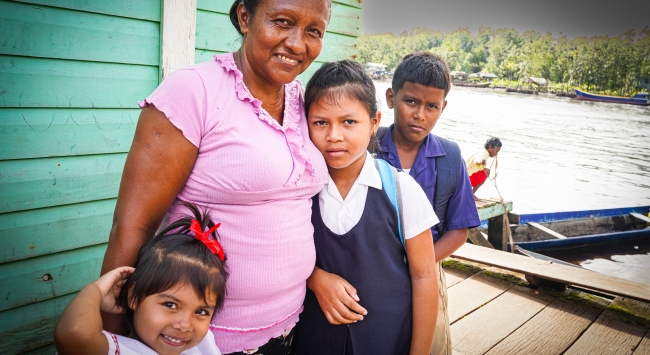The International Organization for Migration (IOM) and the UN Refugee Agency, UNHCR, acknowledge the progress made by countries in the Americas towards fulfilling the pledges made in the Declaration on Migration and Protection adopted at the IX Summit of the Americas, last June in Los Angeles. At the same time, the two organizations warn that much work is still needed to respond to the unprecedented challenges facing migrants and refugees, as well as the communities and countries of origin, transit, destination, and return in the Americas.
The countries that endorsed the Los Angeles Declaration pledged to strengthen national, regional, and hemispheric efforts to create the conditions for safe, orderly, humane, and regular migration and to strengthen frameworks for international protection and cooperation.
Since then, governments in the region have launched important initiatives, including expanded refugee resettlement programmes, family reunification, and labour mobility schemes, and other safe legal pathways to protection and immigration into the United States and other countries. At the same time, mechanisms such as the Quito Process, the Regional Conference on Migration, and the South American Conference have created and intensified synergies.
We applaud these efforts of regional collaboration and collective responsibility. The expansion of refugee resettlement and regular pathways for migrants, however, cannot replace the responsibility of States to provide people with access to territory and asylum procedures.
At the same time, it is important to provide life-saving humanitarian assistance and ensure continued support for full social and economic inclusion in the countries in Latin America and the Caribbean that continue to host the majority of the people displaced in the Americas.
Millions of Venezuelan migrants and refugees, for example, have benefitted from regularization processes in various countries in Latin America and the Caribbean. It’s crucial to extend these initiatives to other nationalities, help protect their human rights and provide stability and solutions for those who would otherwise be on the move.
Development actors and international financial institutions also play an important role. Their contributions, in the form of grants and loans for much-needed infrastructure, help to strengthen national services, including for host communities, and help them cope rather than being overstretched by the additional demand from migrants and refugees.
Addressing the mixed movements of migrants and refugees requires an approach that takes into account the complexity of the routes taken and looks at countries of origin and transit, as well as the final destination countries. The challenges of human mobility in the Americas demand a concerted hemispheric strategy rooted in international cooperation and solidarity, as recognized by the Los Angeles Declaration.
IOM and UNHCR will continue to work with states, regional consultative processes, civil society, and the migrants and refugees themselves, towards realizing this comprehensive vision in line with the Global Compact for Safe, Orderly and Regular Migration, the Global Compact on Refugees, as well as the Los Angeles Declaration on Migration and Protection.
